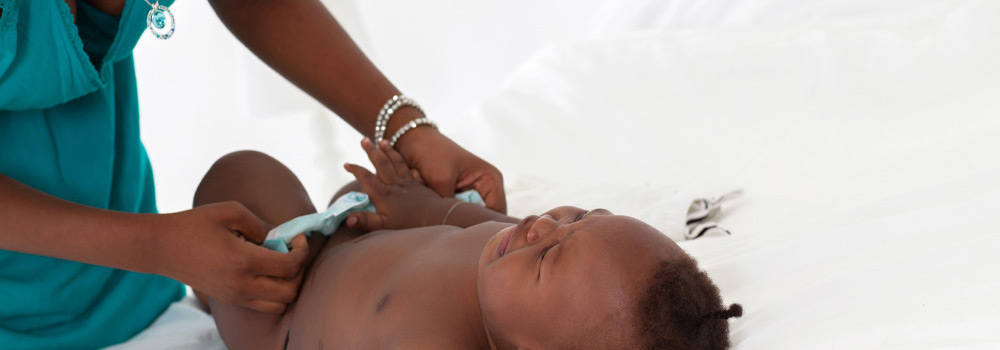It’s normal for babies to develop rashes early on as their skin adapts to a different environment. If your baby develops a rash and seems unwell contact your GP.
Most rashes are nothing to worry about but do be aware of the signs of meningitis.
Nappy rash
Nappy rash is very common and can affect lots of babies. It is usually caused when your baby's skin comes into contact with wee and poo that collects in their nappy. A nappy rash causes your baby's skin to become sore.
Most nappy rashes can be treated with a simple skincare routine and by using a cream you can get from the pharmacist. With a mild nappy rash, your baby won't normally feel too much discomfort.
Dry skin
A baby’s skin is thinner and needs extra care. Dry, flaky skin, some blemishes, blotches and slight rashes are normal in newborns and will naturally clear up. If your baby is otherwise well but has a rash and you are worried about it contact your health visitor.
Call in and talk to us about
creams we can provide you
with over the counter.
There are two types of nappy
cream available. One is a
barrier cream to keep wetness
away from your baby's skin.
The other is a medicated
cream, that is good for clearing
up any soreness but should
only be used when advised by
a health professional.
Health visitor’s cradle cap tips
This is the name given to the large greasy
yellow or brown scales that appear on your
baby’s scalp. Sometimes they may flake and
the skin may be red. It should not cause your
baby any discomfort and should settle over
time. It is important not to pick at the scales
as this may cause infection.
Massaging baby oil or natural oil -
such as almond or vegetable oil (not
olive oil) - into their scalp at night
can help loosen the crust.
Gently wash the scalp and use a
soft baby brush or cloth and gently
remove any loose scales.
If this does not settle, the redness spreads or
your baby is itchy then seek medical advice.
1
There is a red, sore rash around the nappy area. Baby is uncomfortable and cries a lot.
2
Has baby been in a dirty nappy for a long time? Have you followed advice from your health visitor, or spoken to your pharmacist?
3
Change nappies often. Speak to your health visitor and if you are still worried, your GP.







